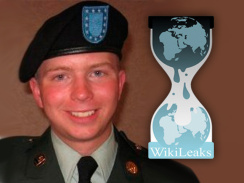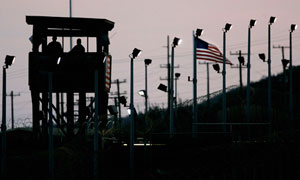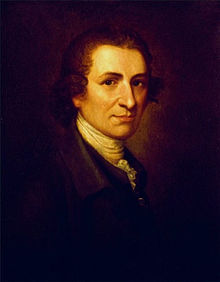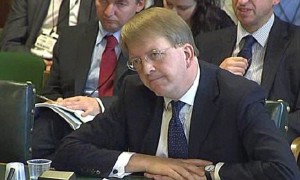An abbreviated version of this article was published by RT Op-Edge yesterday.
News of the two bombs in Boston, in which 3 people have so far died and more than 100 have been injured, has ricocheted around the world. Beyond the grim statistics, there is little concrete evidence about the who and the why, and nor will there be possibly for days or even weeks. This confusion is inevitable in the wake of such an attack, as the intelligence agencies and police play frantic catch-up to identify the perpetrators and, we hope, bring them to justice — although of course in post-Patriot Act, post-NDAA America, the perpetrators are more likely to find their names on the CIA’s presidentially-approved kill list.
In the absence of facts, the media fills its airwaves with speculation and repetition, thereby inadvertently whipping up yet more fear and uncertainty. The fall-out from this is an eruption of prejudice in the social media, with desk bound heroes jumping to conclusions and advocating violent reprisals against whole swathes of the Middle East. And this fear and hate plays straight into the hands of the “enemy-industrial complex” so aptly described by Tom Engelhardt recently.
With that in mind, let’s take a moment to pay our respects to those who died in terrorist attacks on Monday. Even a quick surf through the internet produces a grim and no doubt incomplete tally: Iraq (55); Afghanistan (7); Somalia (30); Syria (18); Pakistan (4); USA (3). All these numbers represent someone’s child, mother, friend, brother, loved one, and all will be mourned.
Alas, not all of these victims will receive as much air-time as the unfortunates caught up in the Boston attacks. And this is especially the case where attacks are carried out by the American military against suspected “insurgents” across the Middle East.
Indeed, on the same day The Telegraph reported that the UN special rapporteur on counter-terrorism and human rights, famous British barrister Ben Emmerson (Queen’s Counsel), had stated that drone strikes across the Middle East were illegal under international law. Their continued use only served to legitimise Al Qaeda attacks against the US military and its infrastructure in the region.
 As we saw in 2010 when Wikileaks released the video, “Collateral Murder”, such atrocities are covered up for years, denied by the government, nor will the perpetrators be held to account — they are probably still serving in the military. Instead the whistleblower who exposed this crime, Bradley Manning, languishes in prison facing a court martial, and the publisher of the material, Wikileaks, faces global repression and a secret federal grand jury indictment.
As we saw in 2010 when Wikileaks released the video, “Collateral Murder”, such atrocities are covered up for years, denied by the government, nor will the perpetrators be held to account — they are probably still serving in the military. Instead the whistleblower who exposed this crime, Bradley Manning, languishes in prison facing a court martial, and the publisher of the material, Wikileaks, faces global repression and a secret federal grand jury indictment.
With its endless, speculative scaremongering about the Boston attacks, the US media plays a diabolical role in furthering the work of the attackers — ie terrorising the population, inducing them to live in a state of abject fear. Of course, once suitably terrorised, the US people will be even more willing to give away what remains of their historic freedoms, all in the name of increasing their security. Well, we know the views of one late, great American on this subject, Benjamin Franklin: “those who would give up essential liberty to purchase a little temporary safety deserve neither liberty nor safety”.
Indeed, the abrogation of liberty in the USA has patently not resulted in greater security, as Boston has so brutally demonstrated. No society can protect itself absolutely against terrorism.
In a democracy, just as rights come with responsibilities, so freedoms come with risk. And we need to remember that those freedoms were hard-won by our ancestors and will be equally difficult to win back if we heedlessly throw them away now, while the risks remain statistically negligible.
 Successive US governments have already decimated the basic rights of the US people in the post‑9/11 security panic. At the sharp end, people, both globally and now also in America, can be extraordinarily rendered (kidnapped) to black prison sites and tortured for years on the word of anonymous intelligence officers, they can be denied due legal process, and they can be killed on presidential decree by drone strikes — a real-world version of the snuff video.
Successive US governments have already decimated the basic rights of the US people in the post‑9/11 security panic. At the sharp end, people, both globally and now also in America, can be extraordinarily rendered (kidnapped) to black prison sites and tortured for years on the word of anonymous intelligence officers, they can be denied due legal process, and they can be killed on presidential decree by drone strikes — a real-world version of the snuff video.
Additionally, the US has descended into a panoptican surveillance state, with endemic data-mining of communications, airborne drone spying, and the categorisation of protesters as “domestic extremists” or even “terrorists” who are then beaten up by militarised police forces. This otiose security theatre constantly reminds US citizens to be afraid, be very afraid, of the enemy within.
Terrorist atrocities are criminal acts, they are not a separate form of “eviltude”, to use George Bush-era terminology. As such, the criminals behind such attacks should be investigated, evidence gathered, and they should be tried in front of a jury of their peers, where justice can be done and be seen to be done. So it is troubling that the Boston FBI bureau chief, Richard DesLauriers, is today quoted in the New York Times as saying he is working on “a criminal investigation that is a potential terrorist investigation”. The precise difference being?
Likewise, terrorist attacks are not an existential threat to the fabric of the nation, even events on the scale of 9/11. However, I would suggest that the response of the security-industrial complex poses a greater existential threat to the future well-being of the USA. The post‑9/11 security crackdown in the USA has eroded core democratic values, while the military response across the Middle East has bankrupted America and created a generation of potential enemies.
But it doesn’t have to be this way. Compare and contrast the response of the Norwegian people in the aftermath of the terrorist attacks and murder of 77 people by Anders Breivik. As a country, there was a need to see justice done, but not to allow such an appalling attack to compromise the values of the society and destroy a cherished way of life for all. And this the Norwegian people achieved.
 Similarly between the late 1980s and the late 1990s the UK endured Lockerbie, Omagh, Bishopsgate, Canary Wharf, and Manchester, to name but a few major atrocities. A good summary of the terrorist attacks against London alone over the last 150 years can be found here, with the first Tube bombing occurring in 1885. A pilot, Patrick Smith, also recently wrote a great article about aircraft security and the sheer scale of the terrorist threat to the West in the 1980s — and asks a very pertinent question: just how would we collectively react to such a stream of atrocities now?
Similarly between the late 1980s and the late 1990s the UK endured Lockerbie, Omagh, Bishopsgate, Canary Wharf, and Manchester, to name but a few major atrocities. A good summary of the terrorist attacks against London alone over the last 150 years can be found here, with the first Tube bombing occurring in 1885. A pilot, Patrick Smith, also recently wrote a great article about aircraft security and the sheer scale of the terrorist threat to the West in the 1980s — and asks a very pertinent question: just how would we collectively react to such a stream of atrocities now?
During the 1990s, at the height of the Provisional IRA’s bombing campaign on mainland Britain, I lived in central London and worked as an intelligence officer for the UK’s domestic Security Service (MI5). Putting aside my professional life, I have personal memories of what it was like to live under the shadow of terrorism. I remember making my way to work in 1991 and commuting through Victoria train station in London 10 minutes before a bomb, planted in a rubbish bin, exploded on the station concourse. One person was killed, and many sustained severe injuries. One person had their foot blown off — the image haunted me for a long time.
I also vividly remember, two years later, sitting at my desk in MI5’s Mayfair office, and hearing a dull thud in the background — this turned out to be a bomb exploding outside Harrods department store in Knightsbridge. And let’s not forget the almost daily disruption to the tube and rail networks during the 1990s because of security alerts. Every Londoner was exhorted to watch out for, and report, any suspicious packages left at stations or on streets.
Londoners grew used to such inconvenience; they grumbled a bit about the disruption and then got on with their lives — echoes of the “keep calm and carry on” mentality that evolved during the Blitz years. In the 1990s the only noticeable change to London’s diurnal rhythm was that there were fewer US tourists clogging up the streets — an early indication of the disproportionate, paranoid US reaction to a perceived terrorist threat.
In contrast to the post‑9/11 years, the UK did not then react by shredding the basic freedoms of its people. There were certainly controversial cases and heated debates about how long you could hold a terrorist suspect without charge, but the way of life continued much as before. Now, twelve years after 9/11 — an attack on a different continent — the UK has all the laws in place to enact a de facto police state within days.
Life and liberty are both precious. It is always tragic when lives are be lost in the name of some twisted or arcane political cause; it is even more tragic when the liberty of all is also lost as a result.
 My heart goes out to those who were injured and to the friends and families who have lost loved ones in the Boston attacks, in the same way it goes out to all those who were killed and maimed across the Middle East yesterday.
My heart goes out to those who were injured and to the friends and families who have lost loved ones in the Boston attacks, in the same way it goes out to all those who were killed and maimed across the Middle East yesterday.
However, I do urge caution in the US response; evidence needs to be gathered and justice seen to be done. Another security crackdown on a fearful US population will hurt Americans much more than two bombs in Boston ever could, while yet more remotely-controlled revenge killings across the Middle East will kill, maim and displace many more thousands.
I shall leave you with a quote from another great American, Thomas Jefferson:
“Single acts of tyranny may be ascribed to the accidental opinion of the day; but a series of oppressions, begun at a distinguished period, and pursued unalterably through every change of ministers too plainly proves a deliberate, systematic plan of reducing us to slavery.”










